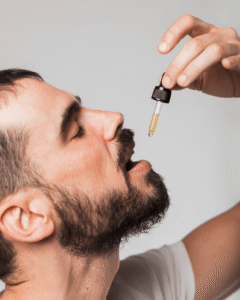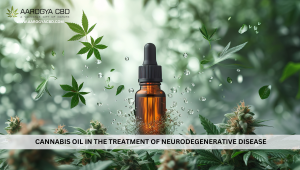Surviving with Cancer is extremely painful and difficult. It exhausts the patient mentally, physically as well as emotionally. Customary forms of cancer therapy incorporate medical procedures like surgery, chemotherapy, and radiation therapy, which are totally significant for recovery.
However, these treatments have multiple side effects like pain, nausea, and insomnia, to name a few. For this cause, ayurvedic or medical cannabis has been demonstrated to be a nurturing botanical companion by relieving people of the side effects that occur due to cancer and its treatment.
This article sheds light on the following commonly asked questions:
- How does Cancer Pain actually feel like?
- How does cannabis help with cancer pain?
- How to use cannabis to relieve cancer pain?
- Where to request an online consultation for CBD consumption or medical cannabis?
- Where to buy medical cannabis or CBD Oil for cancer pain in India?
How does Cancer Pain actually feel like?
It is possible to describe cancer pain as a dull aching sensation, pressure, tingling, or burning. The type of pain often gives clues about the sources of the pain. For example, pain caused by damage to nerves is usually described as burning or tingling, whereas pain affecting internal organs is often described as a sensation of pressure.
Cancer patients also suffer from different types of pain, which will reveal a lot about them. A few months before disease or complications appear, pain and changes in pain can occur. One indication of a potentially life-threatening condition is the way someone feels pain. In order to achieve your health goals, it’s important to inform your doctor about any changes in your health.
There are many complex relationships between complicating factors in cancer pain. Cancer-related pain is often linked to other problems that have been aggravated or started by the spread of the disease. Some skin infections, such as shingles, which can be painful and result from immune system damage, are more common in patients with cancer. Cancer pain may also be caused by side effects from cancer treatments that further complicate immune system problems. Radiation therapy and chemotherapy can significantly harm tissues and nerves, as can surgery. Cancer patients often take pain relievers just to counter these problems, which may persist after cancer has been treated.
Cancer pain has devastating psychological effects. Pain makes suffering worse by increasing feelings of helplessness, anxiety, depression, and despair. Whatever the status of cancer, uncontrolled pain may prevent someone from working productively, enjoying recreation, or taking pleasure in family and their surroundings.
Cancer pain affects the quality of life in four main ways:
- physically (people feel weak)
- psychologically (people feel unable to cope)
- socially (people’s relationships suffer)
- spiritually (suffering may make people question their beliefs)
How does Cannabis help Cancer Pain?
Approximate 400 different compounds of cannabis are present, more than a hundred are identified as cannabinoids. Like a decent team, these compounds work synergistically and show promising results when utilized for pain relief.
Two prime compounds, specifically CBD and THC, are of exceptional interest to doctors today. Found in restricted amounts, THC assists with chemotherapy-induced side effects and pain. CBD has anti-inflammatory and anti-analgesic properties that give relief to patients who are suffering from immense pain. Cancer patients who use cannabis also see an abatement in neuropathy. This is noteworthy considering the magnitude of agony that accompanies it.
How to use Medical Cannabis to relieve Cancer Pain?
More people throughout the world are seeking information from their doctors or primary care physicians demanding access to use medical cannabis to aid their pain. Many more individuals are willing to incorporate this age-old medication to bring ease to their lives. As a response to this demand, several cannabis-infused products have emerged for people with fluctuating needs and expectations.
Oral Consumption
Oral consumption alludes to devouring cannabis products orally. This can be done in the following forms:
- Edibles: These are ready-to-eat foodstuffs that contain cannabis compounds. Some common forms of CBD edibles incorporate gummies and chocolates. Cannabis-implanted tea and espresso are other preferred choices.
CBD Edibles in India - Capsules and Tablets: These are just like conventional nutrient enhancements rich in cannabis compounds. Capsules must be consumed in traditional medication as consulted by your doctor.
CBD Capsules In India - Sublingual consumption: This alludes to the process of placing the cannabis extract right under the tongue. Allow it to absorb for 30-45 seconds before you swallow. Through this technique, cannabis can directly enter the bloodstream and its impacts can be visibly seen within 5-20 minutes.
CBD Drops In India
Topical Application
Topical applications allude to the process of consuming cannabis-based products over the skin that is external. These incorporate applying oils, medicine, and creams over the body parts experiencing inflammation and aggravation. You can likewise massage over the joint to encounter prolonging effects.
Through this technique, the cannabis compounds respond with local cannabinoid receptors, reduces inflammation, and hence helps to relieve pain.
CBD Oil For Topical Application
Vaping
Vaping is another important alternative. It includes smoking cartridges loaded up with cannabis extricates. This technique is the fastest to show impacts. In some cases, it causes damage to the lungs.
However, vaping is considered illegal in India. We suggest the clients embrace any of the substitute methods for consuming cannabis.
Where to request an online consultation for CBD consumption or medical cannabis?
Book an online consultation now! (Click Here)
✔ Convenient and Easy
Easily book a video consultation with a specific doctor or a specialist right away.
✔ Consult Top Doctors
Make a video call or schedule a consultation in minutes.
✔ 100% Safe Consultations
We guarantee a secure and confidential online consultation.
✔ Clinic-like Experience
Consult with the doctor of your choice via video calls for a clinic-like experience.
Conclusion
As multiple kinds of research are being conducted in the field of clinical cannabis, we’re discovering that plant-based cannabinoids have antitumor impacts! More information about cannabis is arising corresponding to malignancy treatment.
Patients have demanded their entitlement to use medical cannabis throughout the world and this has pushed doctors to investigate and dive further into the subject. Subsequently, providing us detailed information about cannabis and its use.
Note that these products need to complement different prescriptions that the patient might be taking. Some people are more prone to experience side effects than others. Hence, one must take control of all products cautiously and take prior consultation.
Common Questions about CBD for Cancer Pain
- What is CBD oil, and how does it differ from marijuana and hemp?
Marijuana and hemp are the two assortments of the cannabis Sativa plant. Both contain cannabidiol (CBD) and tetrahydrocannabinol (THC) — two of the most common active ingredients. The prime difference between them is that hemp has much less THC than a marijuana plant. Furthermore, unlike THC, CBD does not act as a psychoactive specialist, so it won’t cause mental turmoil, tiredness, or hallucinations that frequently accompany THC.
- Is there any evidence that CBD oil can cure cancer?
At this moment, no. There is no proof that CBD oil can cure cancer or malignant growth.
- What can CBD oil do to reduce the symptoms of cancer or its side effects?
It’s difficult to say if CBD oil can cure or reduce cancer growth since researchers have a mixed opinion. However, CBD does play a significant role in reducing the pain caused to patients.
There have been reports that cannabinoids like THC and CBD might be useful for sickness, nausea, and anorexia, just as neuropathy, anxiety, depression, and a sleeping disorder. Engineered cannabinoids like dronabinol have been supported for use with chemotherapy-incited side effects, however have not been demonstrated to be better than conventional medicines.
- Are any products using CBD oil been supported by the FDA to treat anything?
In countries like the US, Epidiolex, a CBD product, is approved by the FDA.
- What are the biggest risks of consuming CBD oil?
Quality, cleanliness, and guidelines are the greatest risks or concerns.
All medications and dietary enhancements are directed by the FDA. However, CBD oil isn’t advertised as a medication or a dietary enhancement. So at the present moment, CBD oil is unregulated. That implies it’s difficult to tell the amount CBD or THC is truly in some products. Certain hemp CBD items have been found to contain fundamentally less CBD or more THC than publicized.
Moreover, there have been a few reports of individuals getting diseases subsequent to utilizing CBD and cannabis items. This is particularly concerning for immunocompromised patients, who are already susceptible to bacterial and contagious
- What’s the main thing disease patients should think about CBD oil?
There’s still a long way to go. So consistently let your medical practitioner know whether you are using CBD oil. That way, we can ensure nothing unfavorable happens with your ongoing medications.
Cancer Pain Medical Consultation Online
Aarogya CBD has a Group of Experts Doctors who provide proper guidence to use Medical Cannabis. You can visit Cannabis Doctors and book and Appoinment
Top CBD Brands for Cancer Pain Management
- PolyHerbs CBD Oil
- Ananta Hemp Works
- CANNABRYL
- BOHECO LIFE
- Qurist CBD




